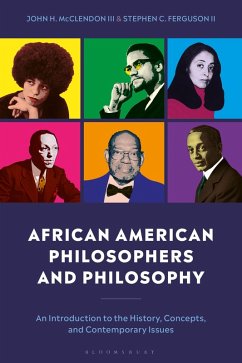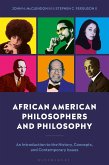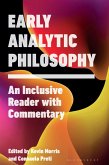This book presents the first introduction to African American academic philosophers, exploring their concepts and ideas and revealing the critical part they have played in the formation of philosophy in the USA.
The book begins with the early years of educational attainment by African American philosophers in the 1860s. To demonstrate the impact of their philosophical work on general problems in the discipline, chapters are broken down into four major areas of study: Axiology, Social Science, Philosophy of Religion and Philosophy of Science. Providing personal narratives on individual philosophers and examining the work of figures such as H. T. Johnson, William D. Johnson, Joyce Mitchell Cooke, Adrian Piper, William R. Jones, Roy D. Morrison, Eugene C. Holmes, and William A. Banner, the book challenges the myth that philosophy is exclusively a white academic discipline. Packed with examples of struggles and triumphs, this engaging introduction is a much-needed approach to studying philosophy today.
The book begins with the early years of educational attainment by African American philosophers in the 1860s. To demonstrate the impact of their philosophical work on general problems in the discipline, chapters are broken down into four major areas of study: Axiology, Social Science, Philosophy of Religion and Philosophy of Science. Providing personal narratives on individual philosophers and examining the work of figures such as H. T. Johnson, William D. Johnson, Joyce Mitchell Cooke, Adrian Piper, William R. Jones, Roy D. Morrison, Eugene C. Holmes, and William A. Banner, the book challenges the myth that philosophy is exclusively a white academic discipline. Packed with examples of struggles and triumphs, this engaging introduction is a much-needed approach to studying philosophy today.









